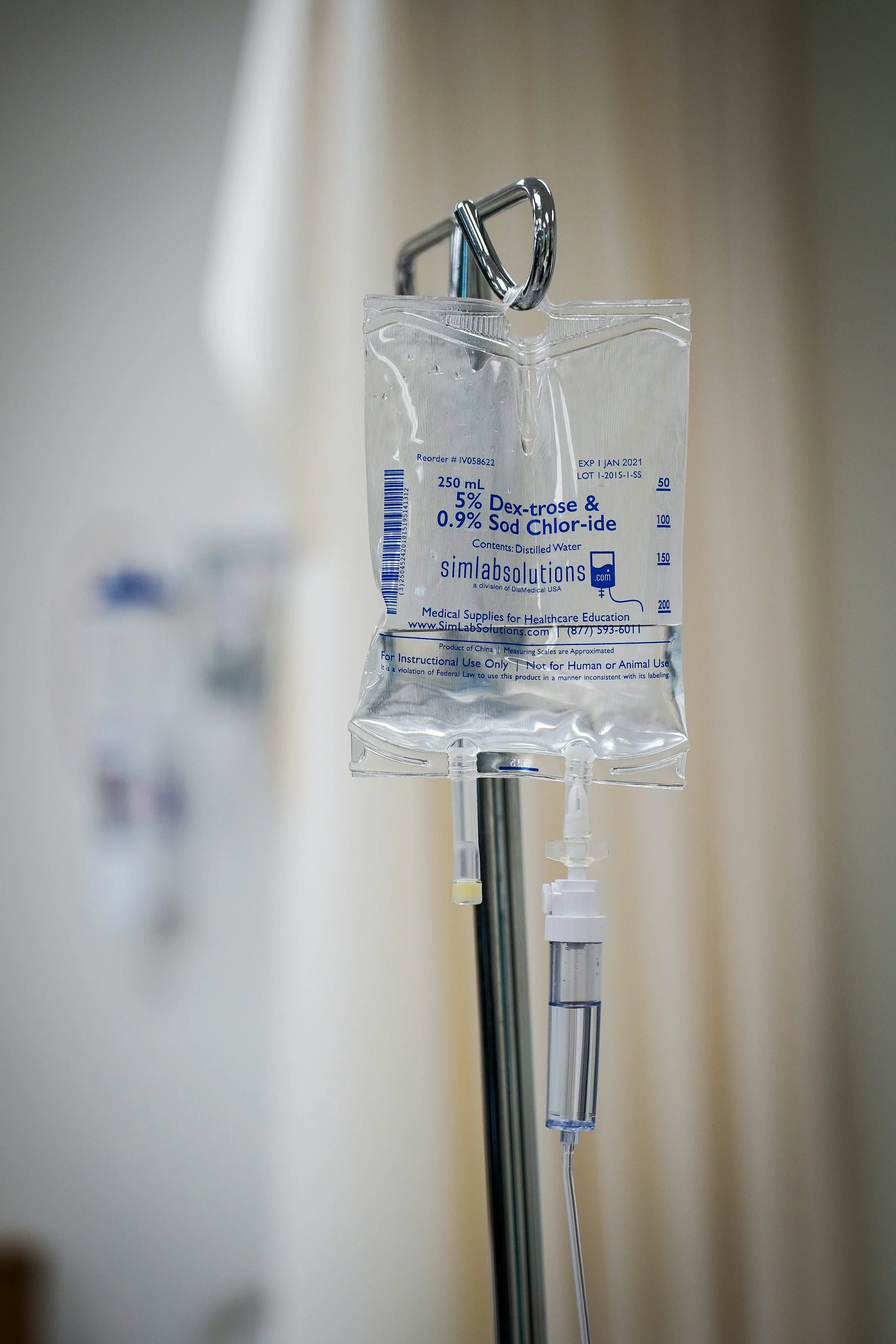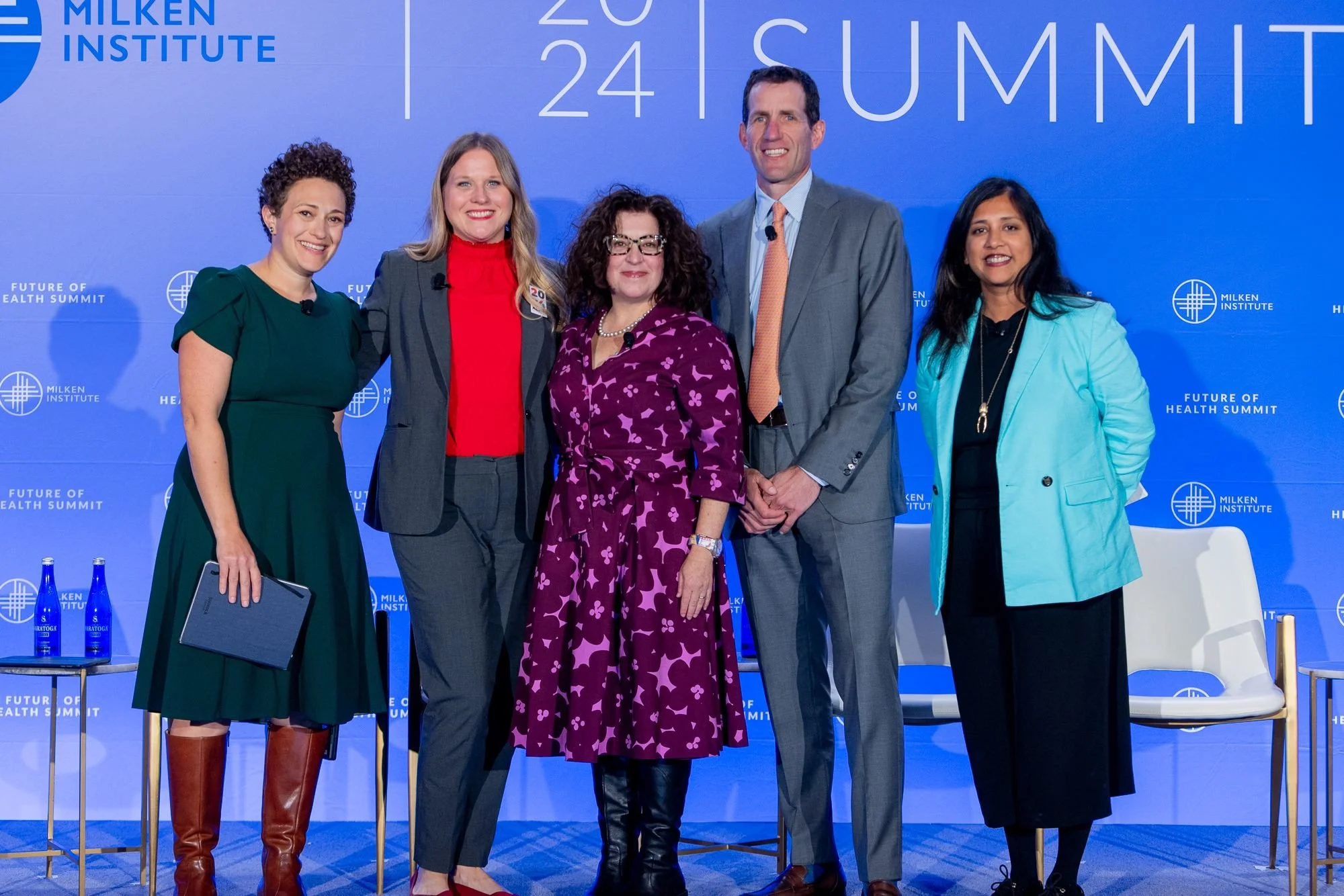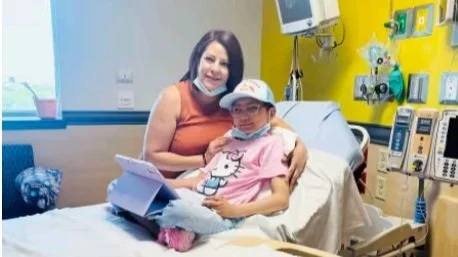Drug shortages are not just a supply chain problem—they are personal. In this Capitol Hill briefing hosted by U.S. Pharmacopeia (USP), patients share firsthand how medication shortages have disrupted care, created fear and uncertainty, and put lives at risk. Their stories underscore the urgent need for stronger policies, better transparency, and a more resilient drug supply system—because patients are counting on us.
Nearly half of U.S. drug shortages, 47%, are tied to sudden spikes in demand, according to new data from the USP Medicine Supply Map. Angels for Change Project GOLD is highlighted in the article as a solution-oriented initiative that uses demand signals and buffer supply to help protect patients from shortages.
Drug shortages aren’t theoretical, they’re affecting families right now. In a recently reaired Tradeoffs podcast episode, Angels for Change is highlighted as a lifeline for patients facing active shortages.
Laura Bray discusses the personal inspiration behind her nonprofit, Angels for Change in a December 2025 interview with Voyage Tampa. Motivated by her daughter's struggle with chemotherapy drug shortages, Bray transitioned from a business professor to lead an organization dedicated to solving pharmaceutical supply chain issues.
Congratulations to Project PROTECT, recently honored with the 2025 EDSA Catalyst Award for Outstanding Industry Collaboration from the End Drug Shortages Alliance. This award honors a multi-stakeholder partnership that has measurably improved drug access and strengthened supply resilience through cooperation, transparency, and innovation.
This award is especially meaningful because it reflects what Project PROTECT was built on from the very beginning: collaboration, ingenuity, and a shared commitment to protecting patients from essential medicine shortages. Together, Angels for Change, STAQ Pharma, and the Children’s Hospital Association designed and launched a model that brings hospitals, advocacy groups, manufacturers, and supply chain experts around one table to strengthen the stability of the drug supply chain.
The End Drug Shortages Alliance (EDSA), co-founded by Angels for Change and Vizient, has grown to more than 100 members across the healthcare supply chain. The article highlights how this expanding organization is advancing transparency, data-sharing and coordinated action to strengthen access to essential medicines. Recent progress includes a pilot with children’s hospitals and distributors focused on improving visibility for critical pediatric oncology drugs. The alliance’s continued growth reflects a shared commitment to building a more resilient, patient-centered supply chain.
Angels for Change celebrates the Senate’s passage of the National Defense Authorization Act (NDAA), which includes key provisions from the MAPS Act to strengthen transparency and coordination across the drug supply chain. This bipartisan step, led by Senators Peters, Lankford, Ernst, Cotton, Kaine, King, and Scott, advances meaningful progress toward a more reliable supply of essential medicines.
As the bill moves to the House, Angels for Change urges continued momentum to protect patients and prevent future drug shortages.
Angels for Change was recently featured in an Understood.org article examining how the DEA’s adjustments to stimulant production limits may affect the ongoing ADHD medication shortage.
The article highlights the complex factors contributing to medication access challenges, including quota restrictions, manufacturing capacity, and rising demand.
When a child is told the medicine they need to live isn’t available — we must act for change. The Children’s Hospital Association’s new article, “Ensuring Access to Critical Medicines for Children,” shines a light on the shared effort to protect pediatric patients from drug shortages and features Angels for Change’s work to strengthen medicine access nationwide.
Cancer Therapy Advisor recently published “Drug Shortages Threaten Cancer Care”, featuring insights from Dr. Ken Komorny of Moffitt Cancer Center.
While discussing solutions to address ongoing drug shortages, Dr. Komorny highlighted the work of Angels for Change, noting that “Angels for Change has proposed several ways to prevent or reduce the impact of shortages, including buffer inventory, stewardship, tracking, and early warning systems modeled after those in banking and agriculture.”
The Children’s Hospital Association recently highlighted Angels for Change in their article “Collaborating to End Drug Shortages.” The story explores how hospitals, manufacturers, and advocates are working together to strengthen the pediatric medicine supply chain. Through Project PROTECT, Angels for Change and partners like CHA are proactively safeguarding essential medicines so shortages don’t interrupt patient care. Together, we’re building a stronger, more reliable system that protects every child who depends on lifesaving treatments.
Healthcare Brew explores how Angels for Change is addressing the national drug shortage crisis. From our Drug Shortage Hotline—which has helped patients access more than 750,000 medicines since 2022—to efforts that strengthen supply chains and raise awareness, the article highlights the urgent need for solutions and the impact of collaboration across patients, providers, and industry.
Angels for Change Statement Included in Congressional Hearing on Strengthening the U.S. Health Care Supply Chain
Last month, the House Energy & Commerce Health Subcommittee held a critical hearing titled: “Made in America: Strengthening Domestic Manufacturing and Our Health Care Supply Chain.”
Angels for Change submitted a formal statement for the record—bringing the voice of the patient directly to policymakers.
New Legislation Takes Aim at Drug Shortages—Angels for Change Recognized in MAPS Act Launch
Angels for Change is officially recognized in the introduction of the bipartisan Mapping America’s Pharmaceutical Supply (MAPS) Act, a groundbreaking bill introduced by Representatives Doris Matsui (D-CA) and Dan Crenshaw (R-TX). This legislation directly addresses vulnerabilities in the drug supply chain by requiring greater transparency, mapping critical drug components, and identifying potential risks before they impact patient care
Angels for Change supports the Mapping America’s Pharmaceutical Supply (MAPS) Act introduced May 15th. This bipartisan legislation marks a critical step toward addressing the root causes of drug shortages and promoting transparency, accountability, and resilience in the U.S. pharmaceutical supply chain.
Angels for Change (A4C) announces the pilot launch of Project GOLD (Generic Oncology Lifesaving Drugs), a new resiliency program that establishes an onshore buffer supply of six essential medications that are used to treat cancer. Project GOLD was created to offer physicians and patients stability of care during a shortage through emergency supply at leading distributors and manufacturers. A4C is participating with founding pilot members, pharmaceutical wholesalers Cencora and McKesson, and pharmaceutical and medtech manufacturer Fresenius Kabi.
Angels for Change applauds Senator Kaine, Senator Cotton, Representative Spanberger, and Representative Smith for their bipartisan leadership in taking on the drug shortage crisis and advancing this vital work. We are proud to support the End Drug Shortages Act.
How Pharmaceutical Supply Chain Advancements are Meeting the Moment and Beyond panel at Milken Institute Future of Health Summit, moderated by Sarah Karlin-Smith from Citeline, with Panelists Laura Bray from Angels for Change, Shamiram Feinglass MD, MPH from Manatt, Phelps & Phillips, LLP, Kirk Kaminsky from McKesson and Vimala Raghavendran from US Pharmacopeia.
We must work to ensure ALL pediatric cancer patients have access to their life-saving medicines.
We must act together to ensure ALL patients have access to life-saving medications. Read the AMJC article and Sandoz's new report titled, "Solving America's Drug Shortage Dilemma, For Good"






























